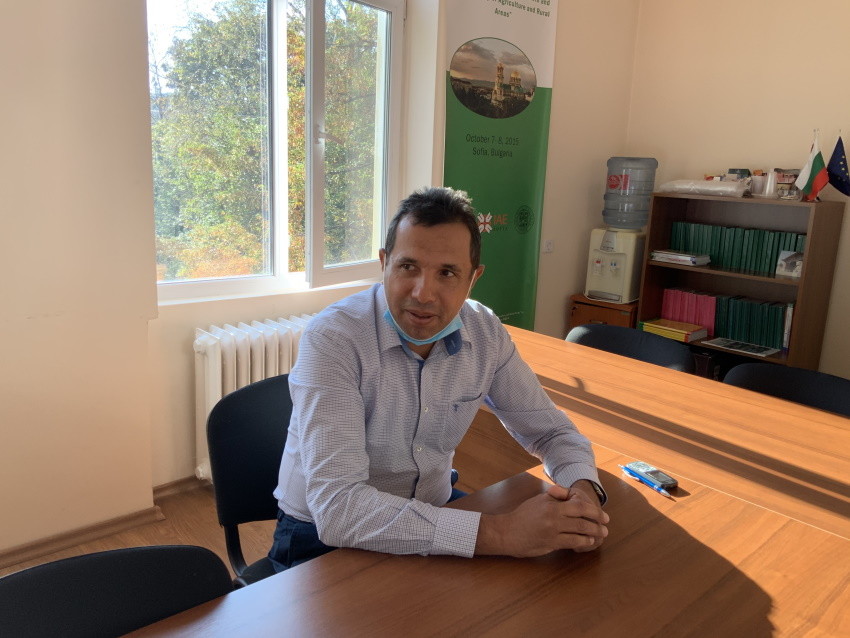Risk management in agriculture is an important aspect for sustainable development of the sector. Climate and diseases are the main risks in plant growing and animal husbandry. However market risks also impact the development of these subsectors. This is especially evident during the Covid-19 pandemic when disruption in supplies has been witnessed.
The topic of analyzing and dealing with risks in agriculture will be on focus during the international scientific conference Agriculture and Food Supply: markets and Policy Reflection which is unveiled today (October 27). The two-day forum is organized for the seventh consecutive year. The Institute of Agricultural Economics in Sofia marks its 85th anniversary through this event.
Director of the Institute of Agricultural Economics Bozhidar Ivanov is an author of the first report within the frameworks of the forum in which he emphasizes the approach to risk assessment in agriculture, giving the consequences of the African Swine Fever virus as an example:
“Bulgaria was just one of the many countries affected by the African swine fever pandemic which broke out in 2019. Fortunately, we did not suffer severe damages. Direct losses in pig breeding in Bulgaria are about 4%. The overall loss is about 10% if we add the indirect losses stemming from the loss of animals used for reproduction.”

Bulgaria’s agriculture has at least two faces – Associate Professor Bozhidar Ivanov pointed out in an interview for Radio Bulgaria.
“On one hand, this is modern farming created over the past 20 years. Modern farmers try to implement the novelties in the sector. They are wide awake and want to learn new things, because they can be competitive only through innovations, modernization and investments in science and knowledge. Of course, things in life cannot be done in gigantic steps and there is certain continuity. On the other hand, we have traditional agriculture of small and medium-sized farmers. But when we speak of new technologies and innovations we must know that they also have a price which is not small at all.”
To what extent can agriculture influence regional policy in Bulgaria?
“The aim is to achieve balanced territorial development. Thus, labor migration will cease and people will stop migrating to the big cities where there are more opportunities for career development. Agriculture continues to be an important livelihood in the villages where it forms at least 50% of the total economic activity. Agriculture is an important industry in the mountain regions and the sparsely population areas where it is the only means of subsistence.”
What is the optimistic scenario for the Bulgarian village?
“I think that modern technologies and modernization will allow people to make professional career in the future without having to live in the big city. Thus, they will be able to return to the village. However, this will not happen that soon, or at least not in the next 10, 20 or 30 years. However, we must not let the Bulgarian villages disappear, because sooner or later we will witness the process of reverse migration.”
Experts from the USA, Italy, Poland, Romania and North Macedonia are expected to attend the conference Agriculture and Food Supply: Markets and Policy Reflection.
English version: Kostadin Atanasov
Photos: iae-bg and Ivo IvanovFor the first time, Bulgaria’s Minister of Finance Temenuzhka Petkova took part as an observer in the regular meeting of the Eurogroup held in Luxembourg, the Ministry of Finance said. Until now, Bulgaria has only participated in Eurogroup..
Since the beginning of the current year, Bulgaria has experienced record heat waves, a series of devastating fires, and a new disaster just days ago – catastrophic floods that claimed human lives . Climate change already has its price – and it is..
Bulgaria will receive EUR 7.4 million in aid from the European Commission to support farmers affected by adverse production conditions in recent months, European Commissioner for Agriculture and Food Christophe Hansen told BTA and clarified that the..
The government approved the draft Law on the 2026 State Budget, as well as the Updated Medium-Term Budget Forecast for the 2026–2028 period. In..

+359 2 9336 661
